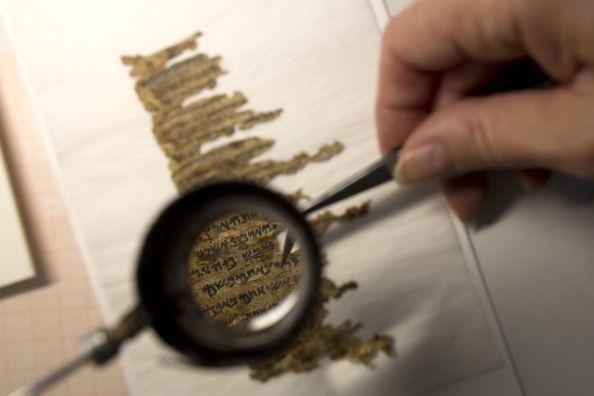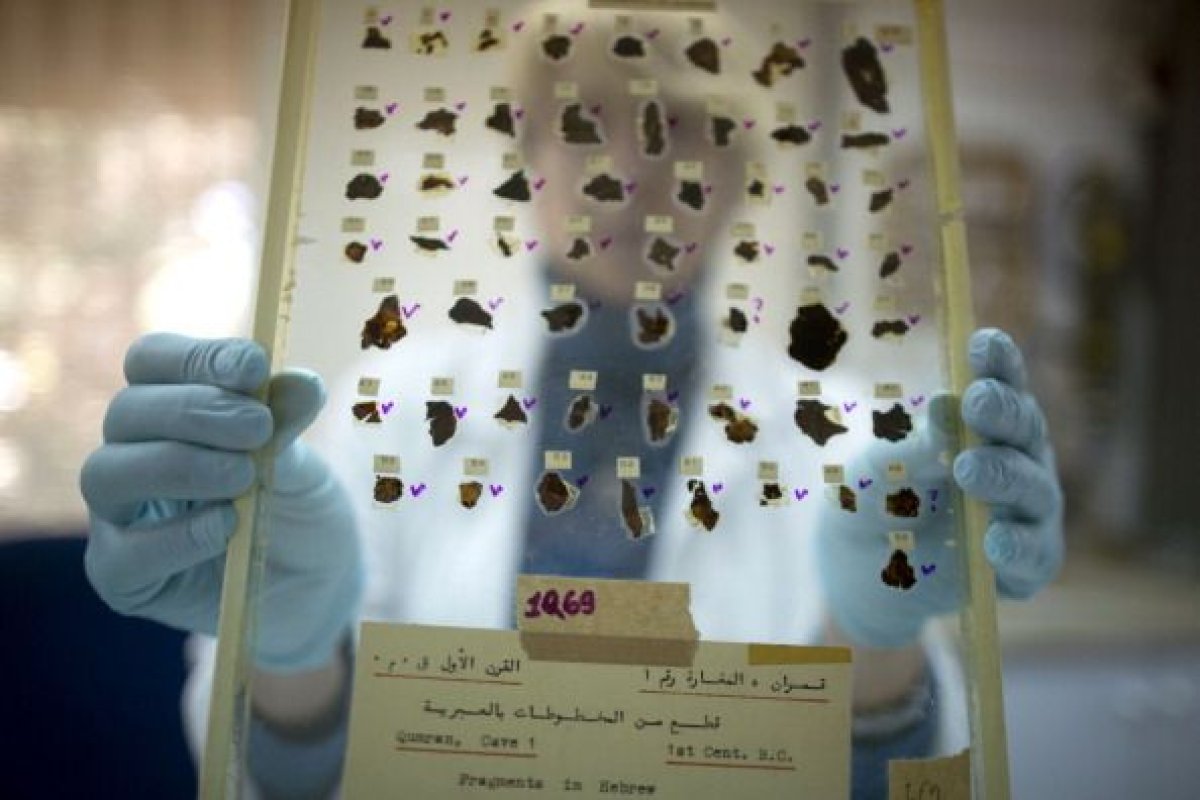
After decades of work, one of the final two encrypted Dead Sea Scrolls that had resisted efforts to decipher its meaning has at last been decoded, revealing an ancient Jewish calendar.
The Dead Sea Scrolls have represented one of archaeology's most compelling enigmas since their discovery in the 1940s and '50s in the Dead Sea Caves. Also known as the Qumran Scrolls, they were written by the hermetic religious Qumran Sect in Hebrew, Aramaic and Greek. This particular scroll was written in coded Hebrew, a rarity among the existing body of deciphered texts, according to Haaretz.
The Qumran Sect's name for itself was the Yahad, which translates to "Together Community," according to the Jerusalem Post. Archaeologists had spent decades assembling and deciphering their fragments, until at last only two had remained undecoded. Researchers from Haifa University in Israel spent a year painstakingly reconstructing the scroll from 60 fragments, according to Jerusalem Online. Some of those fragments were just a few millimeters across. The research was published in the journal Biblical Literature.
Text reveals unique calendar used by Jewish sect that withdrew to the Judean Desert over disagreements with the ruling establishmenthttps://t.co/5Ljk662O0b
— Haaretz.com (@haaretzcom) January 21, 2018
"Tens of thousands of fragments belonging to over 900 scrolls were found in the caves of Qumran," Eshbal Ratson, a biblical expert at Haifa University, told Haaretz. "This is the most important archaeological find ever made in Israel. This is literature from the Second Temple period, and that's rare."
Ratson told Haaretz that most Jews from that time period used a calendar similar to the one we use today. The Qumran sect used a 364-day calendar—so, almost based on a solar year but not quite—with 30- or 31-day months in each season. Since 364 divides into 7, Ratson continued, each date falls on a specific day of the week and all holidays have fixed dates.
"We now know that in the Temple there were disputes over what happens it the Passover falls on Shabbat," Ratson told Haaretz "What supersedes what, Shabbat or the holiday? This sect solved the problem, since no holiday fell on Shabbat. This scrolls details all dates on which Shabbat falls and all the days of the week on which the holiday falls."

The 364-day calendar also contained the sect's previously unknown word for days that marked the changing of the seasons: tekufah. The word, whose meaning had previously been lost, appears in the Mishna (the written record of oral Jewish laws), according to Haaretz.
"This shows us that the researchers who believed the day of celebrating the transition between the seasons was called by this name were correct, and that this word, used in the Mishna, was preserved from the days of the Second Temple—it's a very early concept in the halakha [religious Jewish law]," Raston told Haaretz.
Uncommon Knowledge
Newsweek is committed to challenging conventional wisdom and finding connections in the search for common ground.
Newsweek is committed to challenging conventional wisdom and finding connections in the search for common ground.
About the writer
Kastalia Medrano is a Manhattan-based journalist whose writing has appeared at outlets like Pacific Standard, VICE, National Geographic, the Paris Review Daily, ... Read more
To read how Newsweek uses AI as a newsroom tool, Click here.








